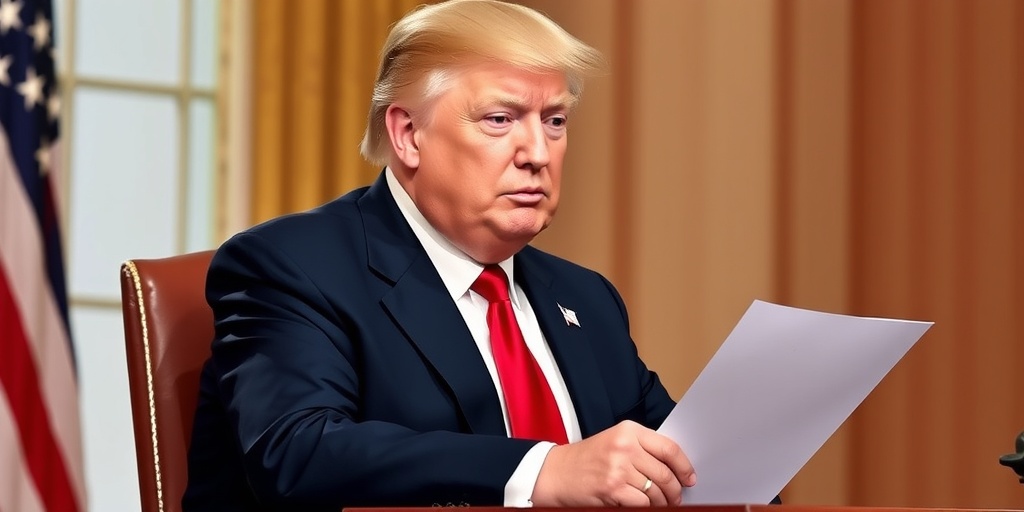Now Reading: Pentagon to Review Hegseth’s Signal Usage
-
01
Pentagon to Review Hegseth’s Signal Usage
Pentagon to Review Hegseth’s Signal Usage

Pentagon’s Acting Inspector General to Review Defense Secretary’s Messaging App Disclosure
The acting inspector general of the Pentagon announced on Thursday a review of Defense Secretary Pete Hegseth’s disclosures made via the Signal messaging app regarding the timing of U.S. airstrikes against Iranian-backed Houthis in Yemen. This action was prompted by concerns over the use of commercial messaging applications for official government communications. The Department of Defense’s watchdog agency, led by acting inspector general Steven Stebbins, will assess whether Secretary Hegseth and other Pentagon officials adhered to Department of Defense policies and procedures when utilizing these applications for governmental business.
In his notification letter addressed to Secretary Hegseth, Stebbins emphasized that the review is intended to evaluate compliance with established guidelines. This decision follows a bipartisan request initiated last week by Senator Roger Wicker, the Republican chairman of the Armed Services Committee, and the committee’s ranking Democrat, Senator Jack Reed.
Stebbins, who stepped into the role of acting inspector general following the firing of Robert Storch by former President Trump, framed the review as an "evaluation" rather than an investigation. This distinction is significant; according to Mollie Halpern, a spokesperson for the inspector general’s office, evaluations focus more on operational aspects, policies, and programs instead of probing any civil or criminal misconduct. Halpern assured the public that the evaluation will be conducted independently, thoroughly, and objectively, with unclassified portions of the findings to be released once the process is completed.
The disclosure in question relates to sensitive information that surfaced on a Signal group chat, which inadvertently included journalist Jeff Goldberg, the editor of The Atlantic. Senator Reed expressed concern that Hegseth’s claims suggesting no war plans were revealed overlook the seriousness of the situation. He remarked, “Those were sensitive and detailed bits of information that, if they had fallen into the hands of the Houthis, would have caused them to move in offensive weapons against our pilots.” This highlights the potential risk to U.S. military personnel due to the unauthorized spread of critical intelligence.
The situation escalated further with the inclusion of Goldberg in the Signal group chat, an event caused by Michael Waltz, the national security adviser. The breach raised alarms over national security intelligence, as it allowed Goldberg to monitor discussions among high-level officials, including Vice President JD Vance and Secretary of State Marco Rubio, in the lead-up to the March 15 strikes in Yemen.
The gravity of this incident prompted bipartisan outrage, with Representative Gerald E. Connolly, a Democrat from Virginia, stating, “Our service members put their lives on the line every day to protect our nation and deserve better than officials who would risk their safety just so they can text each other congratulations.” Connolly’s comments echoed the sentiment that such breaches of security protocol and potential violations of law warranted a serious investigation.
In addition to the inspector general’s review, Democratic Senators Adam Schiff, Andy Kim, Ruben Gallego, and Elissa Slotkin called on White House Chief of Staff Susie Wiles for additional information regarding any potential damage to national security resulting from the administration’s use of commercial messaging applications. They expressed the necessity of understanding the full scope of implications stemming from this incident.
On Monday, White House Press Secretary Karoline Leavitt stated that a review conducted by the White House regarding the leak had been concluded, indicating that measures had been put in place to ensure such lapses in communication protocol would be prevented in the future.
As this review unfolds, it remains to be seen what measures the Pentagon may implement to strengthen its policies around the use of commercial messaging apps, preserving the integrity and security of sensitive military operations while ensuring that officials are held accountable for their actions. The implications of this incident extend beyond the immediate concerns of communication breaches; they also raise questions about the protocols governing official communications in an increasingly technology-driven environment.
Stay Informed With the Latest & Most Important News
Previous Post
Next Post
-
 01New technology breakthrough has everyone talking right now
01New technology breakthrough has everyone talking right now -
 02Unbelievable life hack everyone needs to try today
02Unbelievable life hack everyone needs to try today -
 03Fascinating discovery found buried deep beneath the ocean
03Fascinating discovery found buried deep beneath the ocean -
 04Man invents genius device that solves everyday problems
04Man invents genius device that solves everyday problems -
 05Shocking discovery that changes what we know forever
05Shocking discovery that changes what we know forever -
 06Internet goes wild over celebrity’s unexpected fashion choice
06Internet goes wild over celebrity’s unexpected fashion choice -
 07Rare animal sighting stuns scientists and wildlife lovers
07Rare animal sighting stuns scientists and wildlife lovers





















